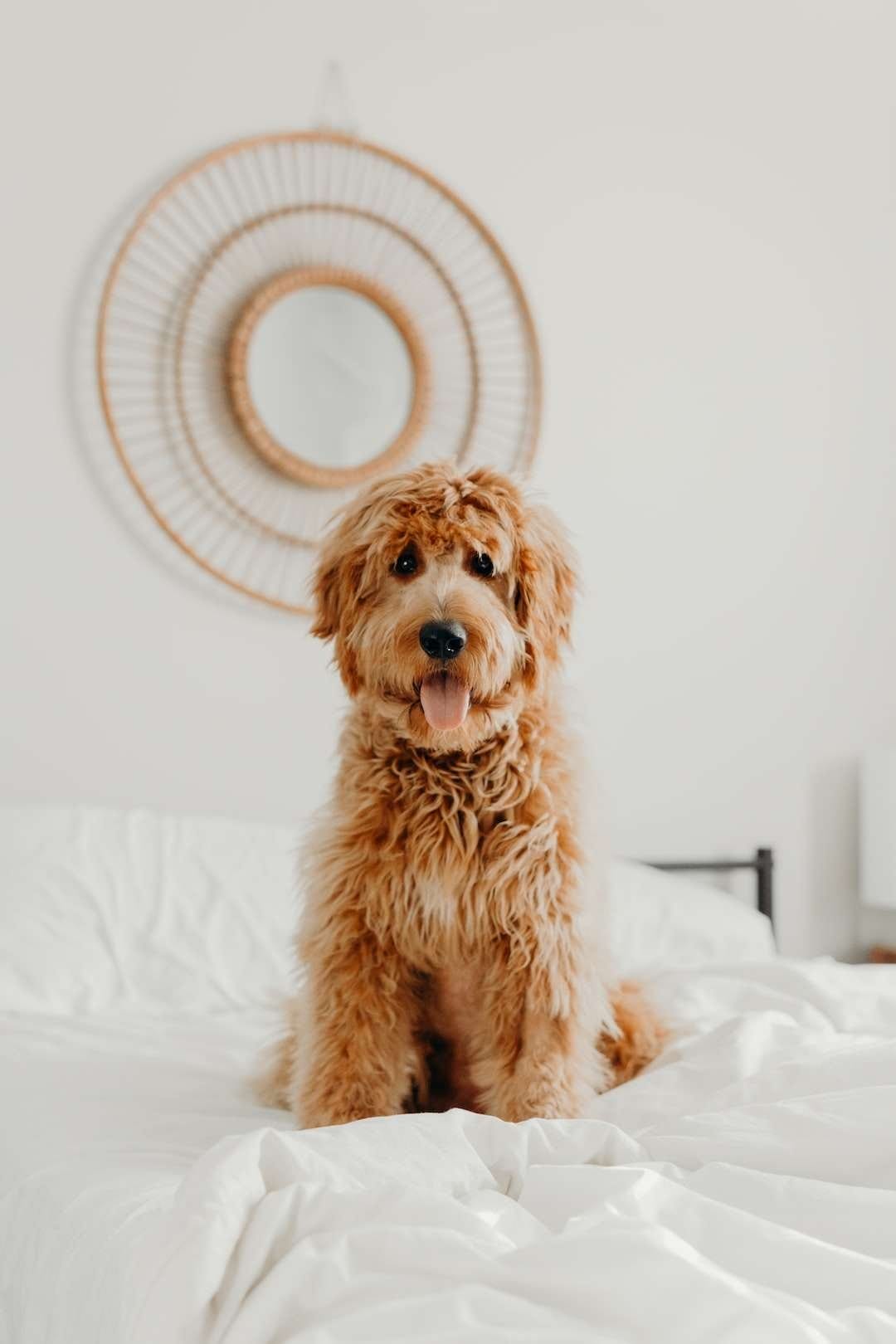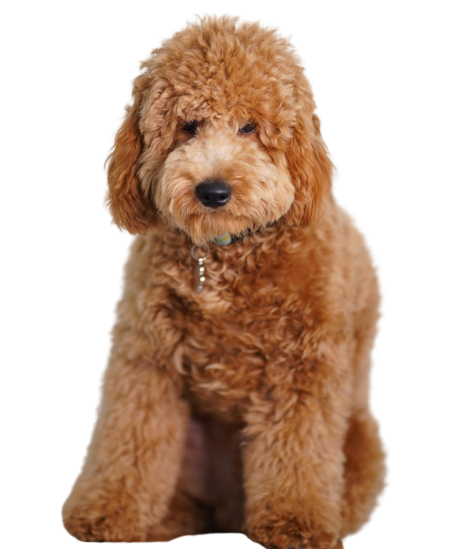Mini Goldendoodles are a hybrid breed created by crossing a Golden Retriever with a Poodle. They are known for their intelligence, hypoallergenic coats, and friendly personalities that make them excellent family pets. Mini Goldendoodles typically weigh between 20-40 lbs and come in a variety of sizes and coat colors. They are generally low-shedding and have excellent temperaments, making them great companions for both children and adults alike.
This blog will provide all the essential information on Mini Goldendoodle characteristics and facts to help you understand why this designer breed is stealing hearts across America.
Characteristics Of Mini Goldendoodles
Mini Goldendoodles are known for their small size, cute appearance, and friendly personalities; they weigh around 15-30 pounds and have soft, curly coats that can vary in color from cream to golden.
Their temperament is generally gentle and affectionate, making them great family pets who love to snuggle up with their owners.

Size, Weight, And Coat Variations
As a proud Mini Goldendoodle owner, I must say that one of the most charming aspects of this breed is its diversity in size, weight, and coat variations.
The coat of these adorable hybrid dogs varies quite significantly as well due to their Poodle and Golden Retriever heritage.
Temperament And Personality
As a proud Mini Goldendoodle owner, I can vouch for their lovable temperament and personality! These adorable hybrid dogs inherit some of the best traits from both parent breeds – the friendly and outgoing Golden Retriever and the intelligent and trainable Toy Poodle.
These fluffy canine buddies are known for being incredibly social creatures that love spending time cuddling on your lap just as much as they enjoy playing with other pups at the dog park.
Their gentle nature makes them excellent therapy or service dogs as well due to their innate ability to bond closely with their human companions.
Another appealing trait of this breed is how easily trainable they are.
Energy Level And Exercise Needs
As a mini Goldendoodle owner, I can attest to the boundless energy these delightful dogs possess. These intelligent and playful pets crave physical activity throughout the day.
To meet their exercise needs, we love taking our mini Goldendoodle on morning walks around the neighborhood or spirited games of fetch in the park. On weekends, romping through hiking trails or having doggie playdates with other canine companions keeps our pup stimulated physically and mentally.

Facts About Mini Goldendoodles
Mini Goldendoodles are a crossbreed between Toy or Miniature Poodles and Golden Retrievers, resulting in hybrid vigor and unique characteristics. However, like all dogs, they can be prone to certain health issues such as hip dysplasia or eye problems.
Crossbreed Origins And History
As a dog lover and mini Goldendoodle enthusiast, I have always been fascinated by the origins of this adorable breed. Mini Goldendoodles are actually a crossbreed between two popular and beloved breeds – the Toy Poodle and the Golden Retriever.
The first generation of Mini Goldendoodles is referred to as F1, which means that they are 50% Poodle and 50% Golden Retriever. These hybrid dogs were initially bred in the United States in the 1990s, with breeders aiming to create an intelligent, hypoallergenic, and family-friendly companion animal.
Today’s Mini Goldendoodles are typically second or third-generation hybrids (F2 or F3), which means they have more consistent characteristics than their first-generation counterparts.
Common Health Issues
As a dog lover and experienced breeder, I can tell you that Mini Goldendoodles are generally healthy dogs. However, like any other breed, there are some common health issues to look out for. Here are a few things to keep in mind when it comes to the health of your Mini Goldendoodle:
1. Hip Dysplasia: This is a genetic condition that affects many large dog breeds and can lead to mobility issues later in life. Make sure you purchase your Mini Goldendoodle from a reputable breeder who screens their dogs for this issue.
2. Eye Problems: Some Mini Goldendoodles may be prone to cataracts or progressive retinal atrophy (PRA), which can cause blindness over time. Regular visits to the vet can help diagnose and treat these problems early.
3. Allergies: Just like people, dogs can also suffer from allergies that could lead to skin irritation, hair loss, and ear infections among others. Regular grooming and use of hypoallergenic products can help minimize these problems.
4. Ear Infections: Because of their floppy ears, Mini Goldendoodles may be prone to ear infections if they’re not cleaned regularly or if water gets trapped inside their ears after swimming or bathing.
By staying on top of these common health issues and taking preventative measures when possible, your adorable Mini Goldendoodle should live a long and happy life by your side!
Where To Find Mini Goldendoodles
As a Mini Goldendoodle lover, I know how important it is to find the perfect pup for your family. There are several ways to find Mini Goldendoodles, including breeders, pet adoption websites, and animal shelters.
Pet adoption sites like Adopt-a-Pet.com and Petfinder also have listings for Mini Goldendoodles up for adoption across the country. You can search by location and even filter results based on age, gender, and size to find exactly what you’re looking for.
No matter where you choose to look for your furry friend, always do your research beforehand to ensure that the organization or breeder has a good reputation and practices ethical breeding methods.
Final Thoughts On Mini Goldendoodles
Mini Goldendoodles are the perfect pet for anyone looking for a friendly and energetic companion. Their unique crossbreed origins make them one of the most popular hybrid dogs around today, with a loyal personality that is both playful and intelligent.
Remember to check out their characteristics such as size, weight and coat variations, temperament, and energy level before adopting one. Keep in mind common health issues that could arise from this breed as well.
As with any dog breed, proper training will be essential to ensure they grow up into happy and healthy companions. Focus on good nutrition, exercise routines tailored specifically for them, and playtime activities that stimulate their minds daily.

